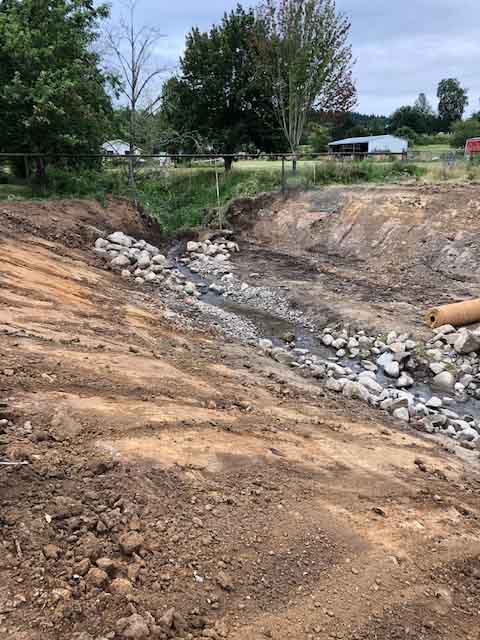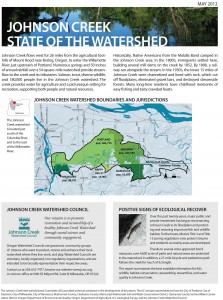Discover
Your source for scientific information and data about Johnson Creek
We are guided by science, building on research and monitoring within the Johnson Creek watershed and across the northwest.
The Johnson Creek Watershed Council is working to reduce impact on and restore the processes and wildlife that shaped our watershed over time, using extensive evaluation and assessment to monitor our impacts.
We want to share what we are learning, as we all work towards healthier watersheds. Our science hub is a collection of documents, reports, and community science data designed to support sound management practices.
The Inter-jurisdicational Committee (IJC)
The IJC is a collaborative group of scientists working on issues of watershed health and restoration, keeping each other updated on projects, sharing results, and strategizing for the future. The committee also advises JCWC on scientific projects.
Many organizations and agencies contribute to our understanding of the science of Johnson Creek, and we cannot thank our partners and advisors enough!
Research Summaries
Water Quality
Water quality in Johnson Creek is influenced by many challenges, such as urban stormwater, septic systems, and agriculture. In 2015, JCWC compiled data from several different agencies and produced a report on Johnson Creek water quality from 2009-2014.
Community Science
Johnson Creek Science Symposium
Each year, we also host our annual Science Symposium to build understanding and foster engagement in this important work. If you’re starting a new research project, please reach out to us. We love to learn and share together!

Restoration in the Watershed
Our restoration efforts address take place across the watershed, in-stream and in the riparian areas and uplands that influence Johnson Creek. We organize volunteer work parties and stewardship events, work with creekside landowners, oversee construction on culverts and dams, and partner with businesses to improve stormwater management.
Important Literature
Some important scientific publications covering watershed restoration can be challenging to find. Our online library is an effort to make that literature available to restoration managers, landowners, and interested people.
State of the Watershed Reports
Over the past twenty plus years, major public and private investment has been reconnecting Johnson Creek to its floodplain and protecting and restoring important fish and wildlife habitat. Metro’s Title 3 and Title 13 zoning regulations have also helped protect streams and wetlands. Over 4,600 acres of parks and natural areas were protected in the watershed, as of 2012, thanks, in part, to several voter-approved bond measures.
These reports summarize the best available information for fish, wildlife, habitat conservation, stewardship, streamflow, and water quality in Johnson Creek at the time.

Our Action Plan
With help from our partners, we devised an action plan to set a course for the Johnson Creek Watershed Council for restoration in the watershed for 10 years.
As the decade comes to a close, we will be updating this plan based on ongoing and new research, so we can continue to improve habitat for the fish, wildlife, and communities that call Johnson Creek home.
